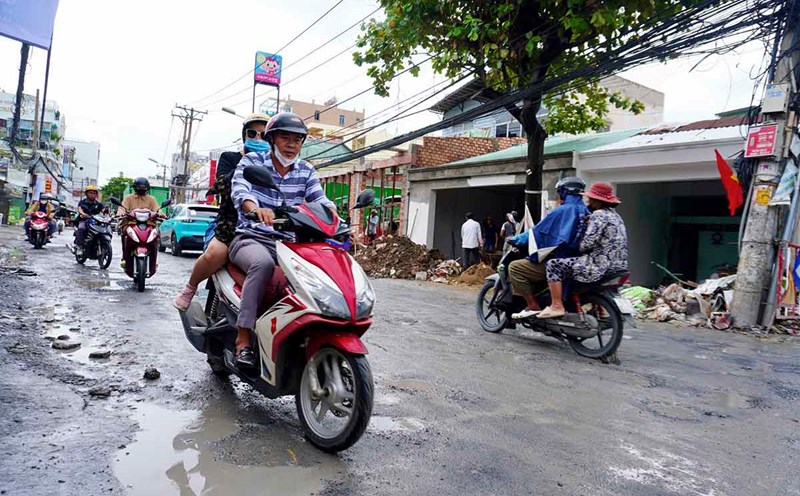lotsely lose the reputation of local officials
As Lao Dong has reported, recently, in many localities in provinces such as Dak Nong, Nghe An, Lao Cai, there have been cases of unpaid money for food, water, stationery... causing public outrage. The amount of money owed to businesses ranges from a few tens of millions to billions of VND.
It is worth mentioning that these debts have dragged on year after year, through many different generations. Only when the incident was reflected and made public did the above persistent silent debts come to an end and were directed by the authorities to be resolved completely.
The situation of some communes and towns "overcharging", leaving hundreds of millions of VND in debt for food and stationery for many years shows loopholes in public financial management. Along with that is the compliance with discipline, order, and public ethics of cadres at the grassroots level.
Speaking to Lao Dong reporter, National Assembly delegate Pham Van Hoa (Dong Thap delegation) said that allowing such prolonged debts to officials has caused bad public opinion. These are even debts from many years ago, through many generations of leaders.
According to the delegate, if there are officials who have owed the people food and drink money for many years like that, "how can we tell the people to listen, it is very unrespectful for the officials and local leaders". Therefore, according to delegate Hoa, in these localities, it is necessary to strictly handle violating officials to create deterrence to avoid similar incidents later.
According to the delegate, it is necessary to rectify the signing of debts as collectives or individuals without going through the budget. Whether it is a cadre, civil servant, public employee or anyone who owes money must pay. In case of non-payment or late payment, the owner of the restaurant or stationery can file a lawsuit to handle the case.
There cannot be any greed between public and private work
In the same discussion, Dr. Cu Van Trung - Director of the Institute for Policy Research and Social Issues - analyzed the phenomenon that some agencies at the grassroots level owe bribes, stationery... in any aspect, which is unacceptable.
"It is difficult to sympathize or rather say that the public is very unfavorable with cases where officials and civil servants "go to the restaurant to order a very large dish, but when they pay, they say very little, which is debt". On the other hand, it is impossible to carry the name of an agency, organization, or position of an officer to eat, or to owe citizens and civil business establishments" - Dr. Trung said.

According to Dr. Trung, the debt of money for food and stationery shows that this is not a normal advance payment, not a contract already included in the estimate/estimation of public spending, so it cannot be settled by budget.
Having to take debts from day to day, even in the period shows a confusion and lack of transparency between the individual and collective responsibilities of agencies, unions, and organizations in festivals, parties, and meals with collective reputation.
The restaurant and business owners, because they do not want to disappoint guests, sometimes do not know that the festival agency is waiting for guests and then take out debt. They are passive subjects, familiar with service services, so when they are owed by local state agencies, they are confused and hesitant to demand money.
The incident broke out when there was a merger of local administrative units. owners of shops, restaurants, and stationery businesses fall into situations where if they do not demand, they will know who to demand.
According to Dr. Cu Van Trung, through the above phenomenon, we see that there must be control of other state agencies, the People's Council, the People's Inspectorate, and further, control of power. There cannot be any greed for private work, as a cadre in relations with civil life in such an unprofessional way.
Losses are not just money
According to Dr.LS Dang Van Cuong (Hanoi City vs. Vietnam Delegation), the most serious consequences of these prolonged debts is the erosion of people's trust in the government apparatus. People clearly see the officials signing food certificates, recording debts, then retiring, going elsewhere, regardless of the people's hopeless demands for money.
Trust - the largest asset of the grassroots government - is being eroded by years of debt. It is difficult for a commune or ward government to create trust if it allows people to " knock on every door" to demand money for food and paper money. That is a manifestation of degradation in public ethics, financial discipline and administrative culture.












